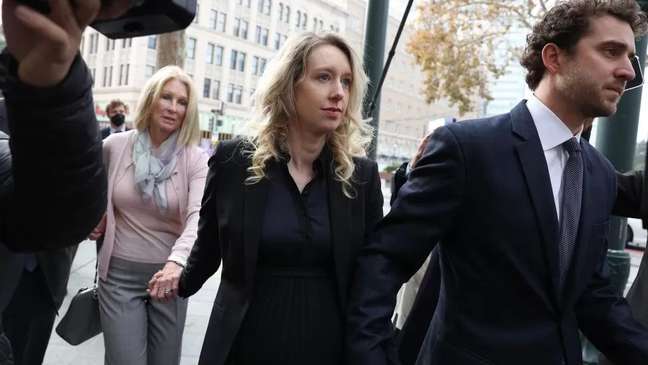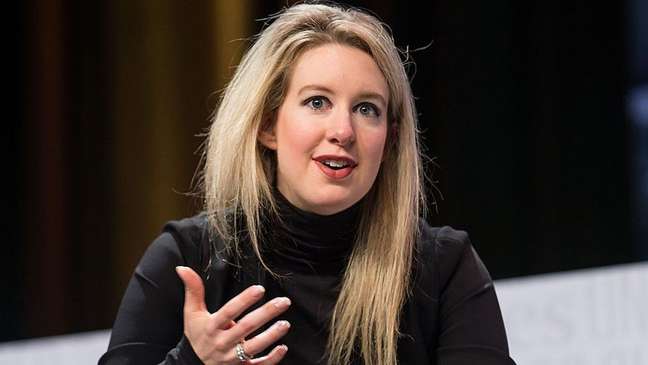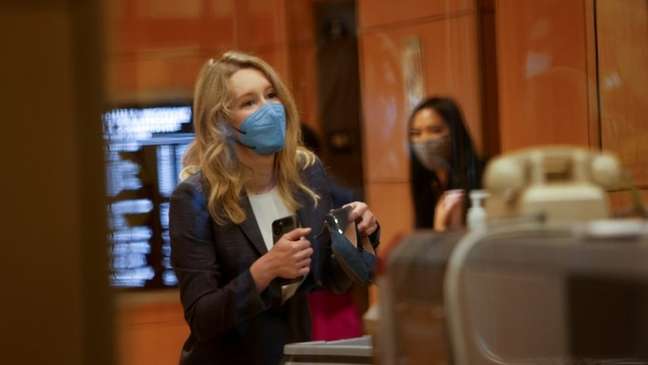Last January, she was found guilty of wire fraud and conspiracy.

Elizabeth Holmes, a controversial Silicon Valley businesswoman, was sentenced this Friday (11/18) to 11 years in prison by a judge in California, United States.
Last January, a jury found her guilty of three counts of wire fraud and one count of conspiracy to commit investor defraud with her company Theranos.
Theranos was once valued at $9 billion because it had the false promise that it had developed an innovative machine that could perform any type of blood test in hours and with just a few drops of sample.
Holmes, now 38, appeared in court Friday visibly shaken. He said he feels “deep pain” for all those who have been led astray by his exploits.
His conviction is seen as evidence of how seriously the US judicial system takes corporate fraud in the technology sector.
During her heyday, Holmes was described as the “new Steve Jobs”.
His lawyers plan to appeal the ruling handed down on Friday.

Blood analysis
Founded by Holmes in 2003 when she was 19, Theranos attracted investor interest due to the huge potential offered by blood testing machines and made its founder a billionaire by the age of 31.
The Theranos tests cost a quarter or even less than traditional tests, prompting American drug store chain Walgreens – one of the largest in the country – to enter into a partnership with Holmes’ company.
The downfall began in late 2015 when the The Wall Street Journal published a series of investigative articles questioning the credibility of Theranos tests and accusing the company of, among other things, diluting blood samples obtained from patients to increase their volume.
Additionally, Theranos was confirmed to be sending diluted tests to traditional labs and claimed the results were obtained on their machines.
These allegations prompted the US Justice Department to file a lawsuit against Holmes and her ex-boyfriend, the company’s former president and chief operating officer, Ramseh “Sunny” Balwani. The two were accused of deceiving investors, doctors and patients.
The Theranos company was dissolved in September 2018.

The judgement
During her trial in San Jose, California, prosecutors said Elizabeth Holmes had intentionally misinformed doctors and patients about the Edison test, Theranos’ alleged breakthrough invention.
They also accused Holmes of exaggerating the company’s financial performance in front of investors.
In January of this year, a federal grand jury of eight men and four women found Holmes guilty on three counts of fraud and one count of “conspiracy to defraud investors.” As a result, she could be sentenced to up to 20 years.
She had other charges but was found not guilty on four others and jurors could not reach a verdict on three others.
“Intoxicated with Fame”
During Friday’s hearing, Holmes read a few words before Judge Edward Davila in apology.
“I am devastated by my mistakes. I feel deep pain for what people have been through because I let them down,” she said.
“I regret my mistakes with every cell in my body,” she added.
According to reporters in the courtroom, the judge called Holmes “brilliant” and told him that while “to go wrong is normal, to go wrong by fraud is not right.”
He also asked if his blunder was influenced by his “fame intoxication.”
Finally, the magistrate said Holmes was a “cautionary story” to other Silicon Valley executives.
– This article was originally published on https://www.bbc.com/internacional-63687821
🇧🇷The best content in your email for free. Choose your favorite Terra newsletter. Click here!
Source: Terra
Camila Luna is a writer at Gossipify, where she covers the latest movies and television series. With a passion for all things entertainment, Camila brings her unique perspective to her writing and offers readers an inside look at the industry. Camila is a graduate from the University of California, Los Angeles (UCLA) with a degree in English and is also a avid movie watcher.





